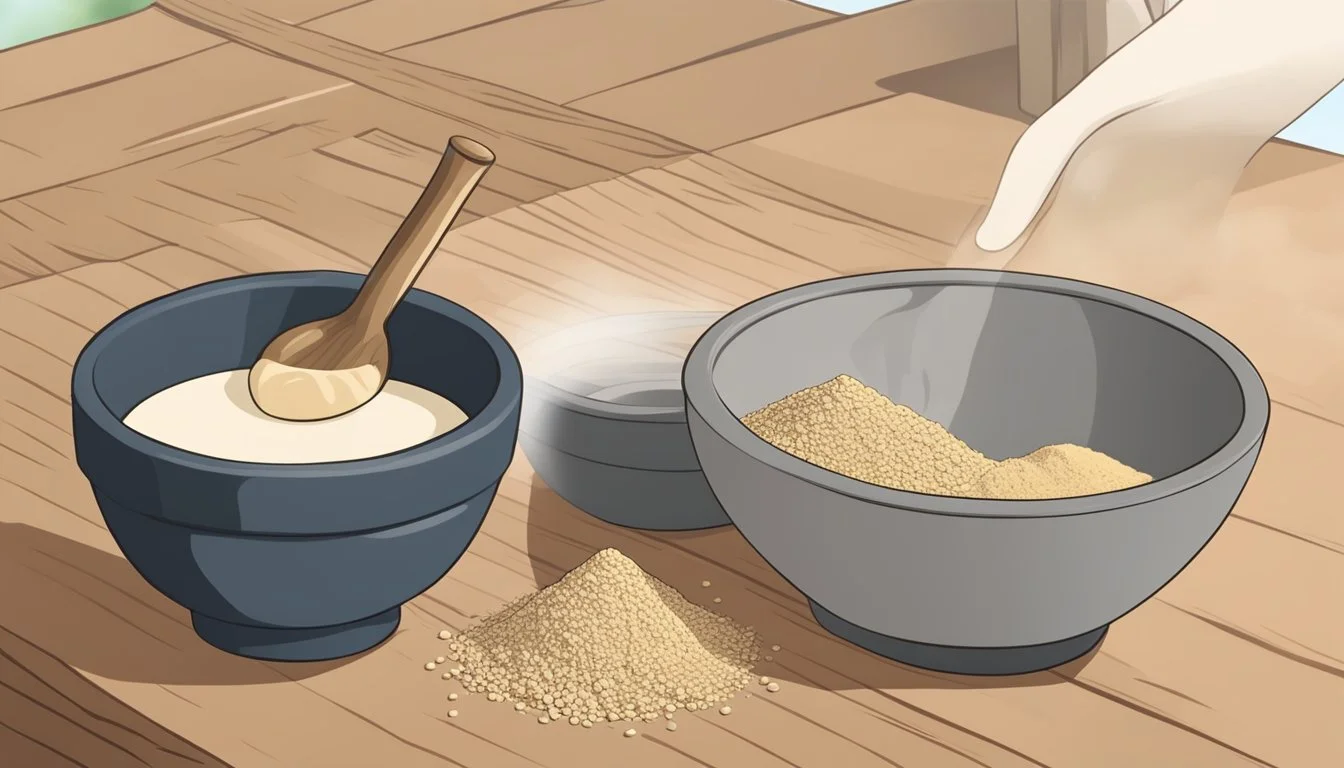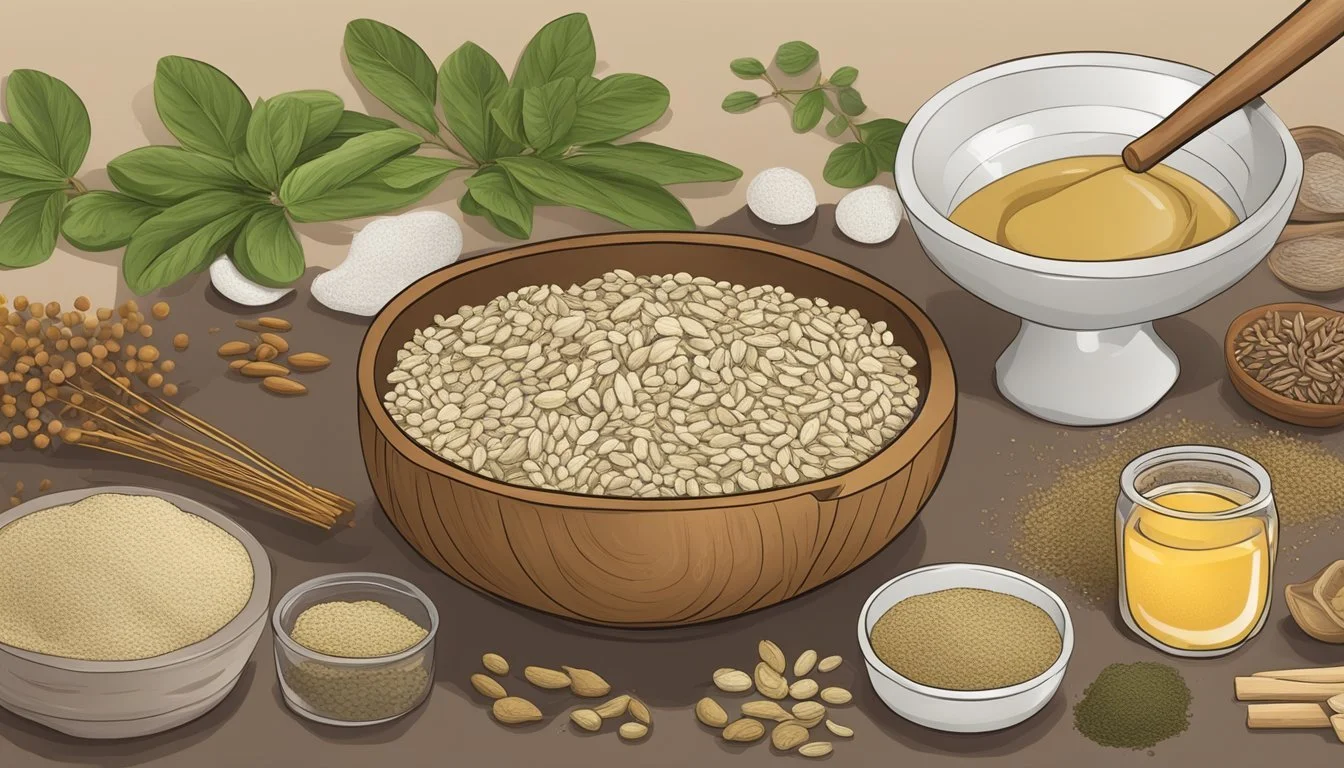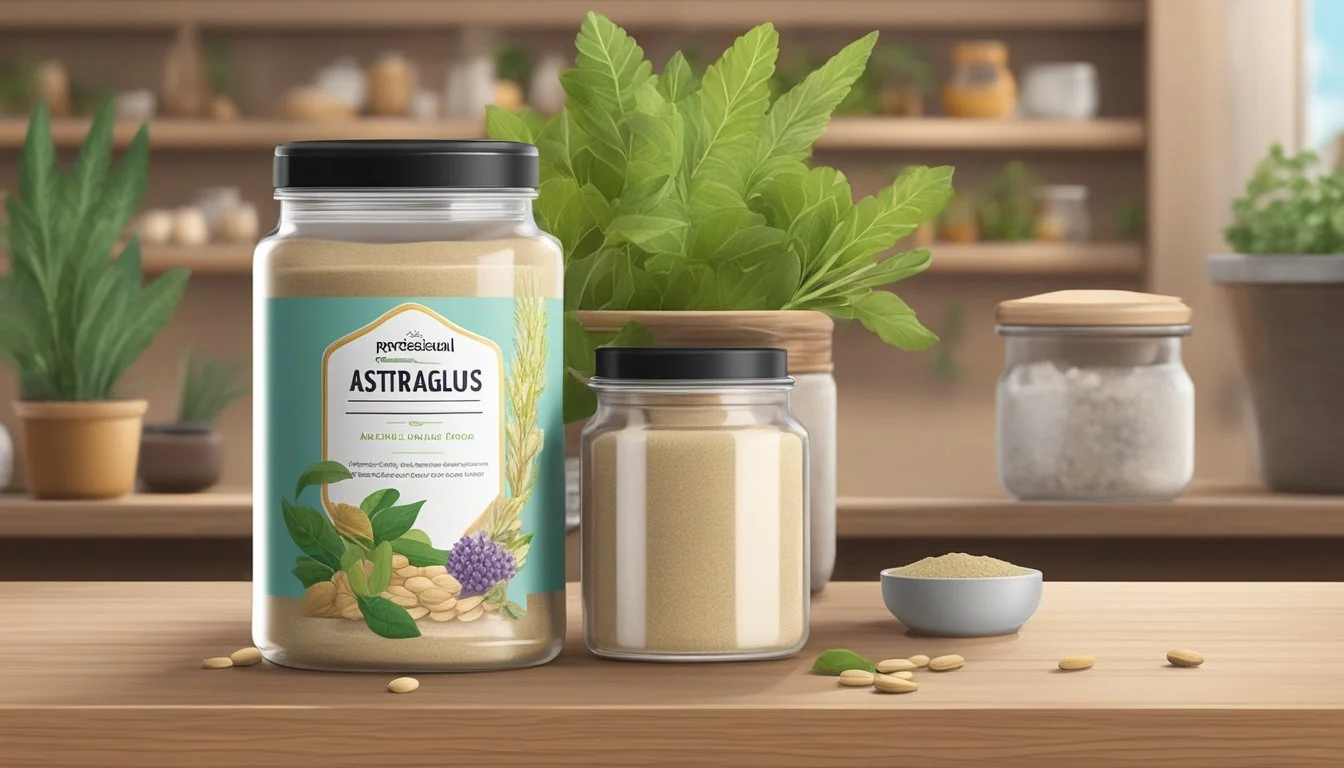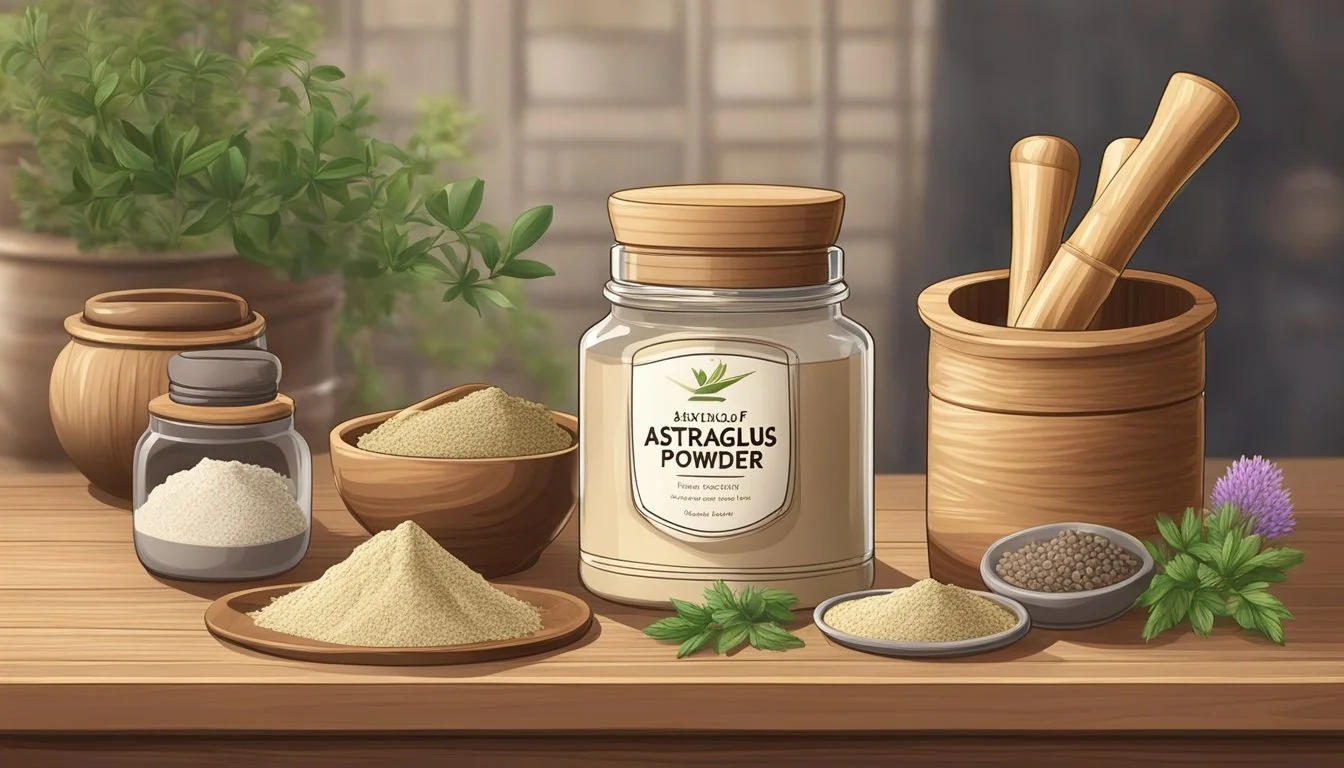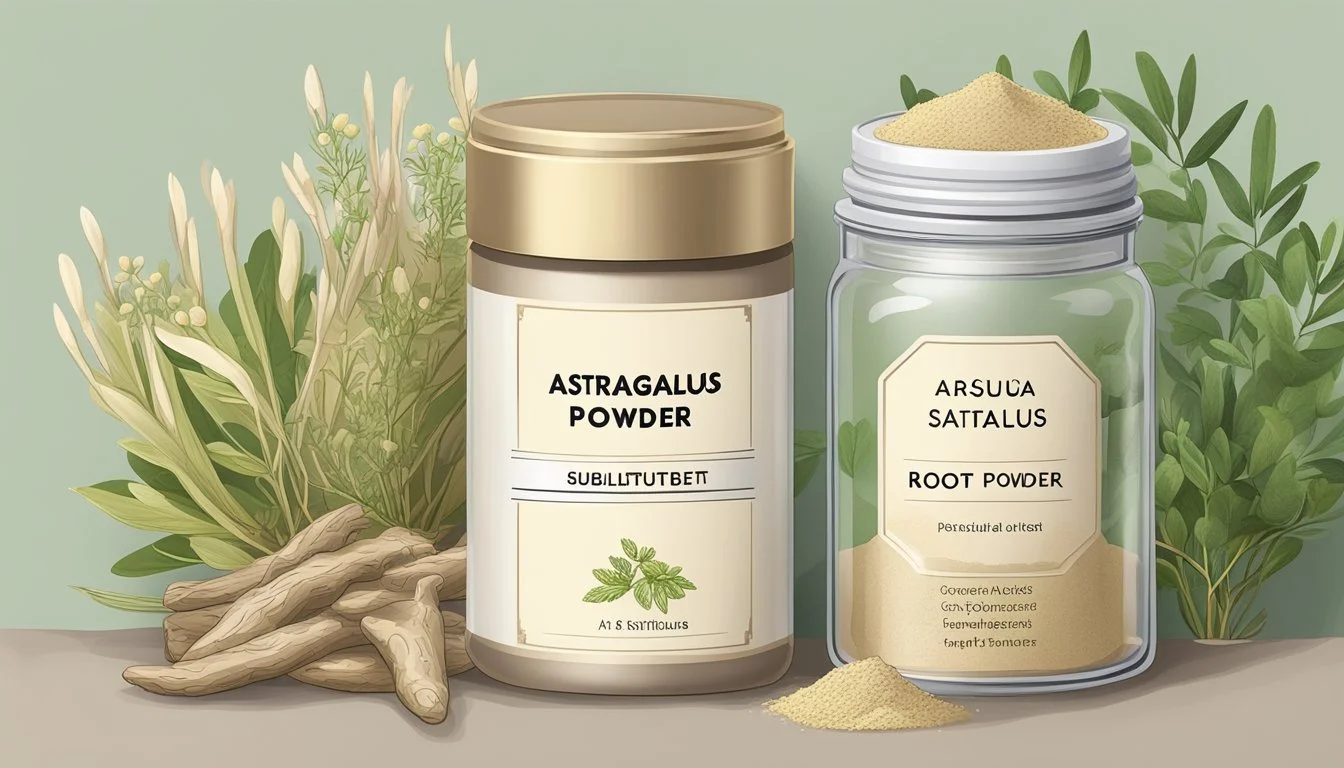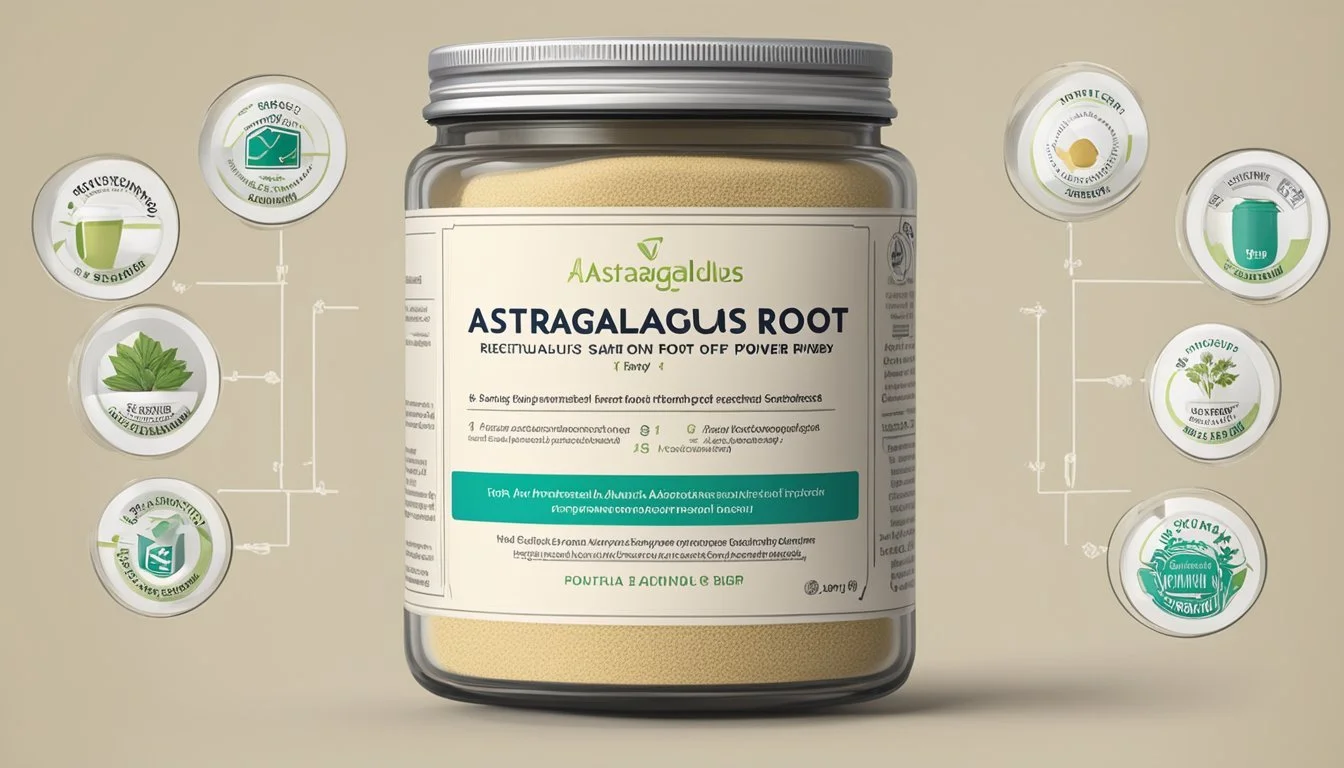Astragalus Root Powder Substitutes
Effective Alternatives for Your Health
Many people turn to natural remedies like Astragalus Root Powder for its potential health benefits, which are well-known in Chinese Medicine. Whether you're seeking to replace the herb in your diet for its immune-boosting properties or looking for alternatives due to availability issues, there are several other herbs and supplements worth considering.
For those interested in cardiovascular support, Hawthorn Berry and Ginseng are excellent substitutes for Astragalus, thanks to their abilities to promote heart health and improve blood circulation. If immune system enhancement is your primary goal, consider using Echinacea or Elderberry, both renowned for their immune-boosting effects.
In cases where inflammation and stress relief are important, Ashwagandha and Rhodiola Rosea are powerful alternatives. Each of these herbs and supplements provides a unique set of benefits, allowing individuals to find one that best suits their personal health needs.
Understanding Astragalus
Astragalus is a versatile herb celebrated for its historical significance in traditional Chinese medicine and its numerous health benefits. Whether as Astragalus membranaceus or Astragalus mongholicus, this plant continues to be an invaluable resource for promoting well-being.
Historical Background
Astragalus, known as Huáng Qí in China, has been used for centuries in traditional Chinese medicine. Its use dates back to ancient times, primarily as a tonic to boost the immune system and enhance vitality. Ancient texts describe its ability to tonify the spleen and lungs, reflecting its integration into treatments for fatigue and stress.
The herb was traditionally used to balance Qi, the vital life force in the body. Astragalus's deep roots in Chinese culture underline its esteemed status among medicinal plants.
Botanical Profile
Astragalus belongs to the legume family and includes species like Astragalus membranaceus and Astragalus mongholicus. The plant typically grows in the northern and eastern regions of China, thriving in sandy, well-drained soils. It is commonly referred to as milkvetch due to its appearance.
The herb is notable for its yellow root, which is used in various forms such as powders, extracts, and teas. The root's sweet and slightly warm properties align with its traditional uses to support the body's vital energy.
Health Benefits and Uses
Astragalus is praised for its extensive health benefits, particularly in bolstering the immune system. Its antioxidant properties help reduce oxidative stress, supporting overall cellular health. The presence of compounds like astragaloside IV contributes to its cardiovascular benefits by aiding in blood vessel relaxation and maintaining healthy blood pressure.
In traditional Chinese medicine, Astragalus is used to treat various conditions, from colds and flu to chronic fatigue. Its adaptogenic qualities make it valuable for reducing stress, enhancing stamina, and managing disease.
Whether in liquid extracts, tablets, or teas, Astragalus remains a popular choice for those seeking natural health remedies.
Astragalus in Traditional Medicine
Astragalus, known as Huáng Qí in Chinese, plays a significant role in traditional medicine, especially within the context of Traditional Chinese Medicine (TCM). The herb is revered for its diverse therapeutic properties and its usage in various ailments, such as boosting immune function and combating fatigue.
Role in Chinese Medicine
Astragalus, or Huáng Qí, is foundational in Traditional Chinese Medicine. It’s considered a tonic herb and an adaptogen, meaning it helps the body resist stressors. Referred to as the "yellow leader," Huáng Qí is believed to strengthen Qi.
It’s frequently combined with other herbs to enhance synergy. Its applications include advancing vitality and longevity, making it a staple in tonic formulas.
Common Ailments Addressed
Astragalus addresses multiple ailments. It’s beneficial for the immune system, often used to prevent common colds and infections.
Seasonal allergies: Provides relief for allergic rhinitis.
Fatigue and weakness: Enhances overall energy and strength.
Respiratory issues: Helps with conditions like asthma.
Frequently used in Asian countries like China and Korea, Astragalus remains a potent remedy in modern herbal practices.
Medical Research
Studies have shown that astragalus has significant effects on various health conditions, including cancer, heart disease, and diabetes, through its anti-inflammatory and antioxidant properties.
Astragalus and Cancer
Astragalus root has been investigated for its potential anti-cancer properties. Clinical studies suggest that astragalus may help enhance the effectiveness of chemotherapy. By boosting the immune system, astragalus can aid in the fight against cancer cells while reducing the adverse effects of chemotherapy treatments.
Research indicates that polysaccharides in astragalus have anti-inflammatory and antioxidant effects which may reduce the proliferation of cancer cells. Additionally, it has been suggested that these compounds can induce apoptosis (programmed cell death) in some cancer cell lines.
Other Health Conditions
Astragalus is also noted for its potential benefits on heart health and diabetes. Studies have shown that its anti-inflammatory and antioxidant properties may help manage heart disease by reducing oxidative stress and inflammation in the cardiovascular system.
For kidney disease, especially chronic cases, astragalus supplementation has shown promise. Research involving patients with mild to moderate chronic kidney disease indicated that astragalus may improve kidney function and delay disease progression.
In diabetes management, astragalus polysaccharides have demonstrated potential in regulating blood sugar levels. Clinical trials suggest that these compounds can improve glucose metabolism and insulin sensitivity. This makes astragalus a noteworthy consideration for supporting diabetes care.
By focusing on specific conditions, the potential applications of astragalus root in modern medicine are highlighted, showing its diverse therapeutic properties.
Astragalus as a Supplement
Astragalus root is valued for its potential health benefits, available in various forms to suit different preferences and needs.
Forms and Preparations
Astragalus root supplements come in several forms, including capsules, liquid extracts, powder, and teas.
Capsules offer a convenient way to consume astragalus root, typically standardized to contain specific active components such as saponins, flavonoids, and polysaccharides.
Liquid extracts provide a concentrated form of the root, which is often mixed with alcohol or glycerin.
Powder can be added to smoothies, oatmeal, or baked goods. It’s also an ingredient in herbal teas, often brewed to enhance immune support.
Dosage and Administration
When considering dosages, it is essential to follow guidelines provided by a healthcare provider. Most supplements recommend doses ranging from 250 mg to 500 mg, taken one to three times daily.
Liquid extracts may be administered using droppers, typically involving 20-30 drops per serving.
Incorporating the powdered root into daily meals ensures a steady intake, but it’s crucial to stick to recommended amounts. The FDA does not regulate supplements as strictly as medications, so consulting a healthcare provider for personalized advice is advised.
Substitute Options
When looking for substitutes for Astragalus root powder, herbal alternatives are often considered due to their similar properties and health benefits. Key factors such as compatibility with existing medications, ease of use, and any potential side effects must be weighed carefully.
Herbal Alternatives
Several herbs can be used as alternatives to Astragalus root powder. Ashwagandha is known for its ability to boost immune function and reduce symptoms of stress. Echinacea, often used to combat colds, also has immune-boosting properties comparable to Astragalus.
Ginseng, particularly Panax Ginseng, is another strong candidate. It is renowned for enhancing energy levels and overall health. Licorice root can also serve as a substitute; it has anti-inflammatory properties and supports respiratory health. Each of these alternatives has unique benefits and can cater to specific needs.
Factors in Choosing Substitutes
Compatibility with existing health conditions and medications is crucial. Some substitutes may interact with medications, affecting their efficiency or causing side effects. Always consult with a healthcare provider before starting any new herb.
Ease of use is another important consideration. For instance, Ashwagandha and Ginseng are available in multiple forms, including teas and capsules, making them convenient for daily consumption. Finally, consider potential side effects and safety.
Some herbs, like Licorice root, should not be used for prolonged periods due to possible side effects. Always monitor the body's response to new herbal remedies and adjust as necessary.
Potential Side Effects and Considerations
While astragalus root powder offers several health benefits, it is critical to be aware of its potential side effects and necessary precautions. Users must consider possible interactions and consult healthcare providers as needed.
Known Side Effects
Astragalus root powder may cause side effects in some individuals. Common symptoms include nausea, diarrhea, and skin reactions such as rash and itching. In rare cases, users might experience more severe reactions, including vomiting.
Certain allergic reactions can occur, especially in individuals sensitive to plants in the Fabaceae family. Symptoms such as hives, difficulty breathing, or swollen lips and tongue warrant immediate medical attention. Continuous excessive use may lead to imbalances in blood pressure or blood sugar levels.
Risks and Precautions
Those pregnant or breastfeeding should exercise caution and consult their healthcare provider before incorporating astragalus root powder into their regimen. There's limited research on its safety for these groups.
Astragalus can interact with specific medications, such as immune-suppressing drugs, possibly affecting their efficiency. It may also interact with diabetes medications, potentially causing undesirable shifts in blood sugar levels.
People with preexisting conditions, like auto-immune diseases, should get professional medical advice for appropriate dosages to avoid adverse effects. Always consider potential risks and consult with a healthcare provider to ensure it’s safe to use astragalus root powder.
Regulatory Status and Safety
Astragalus root powder is subject to various regulations and safety guidelines to ensure consumer protection. It’s important for users to be aware of these regulations and consult healthcare providers before use.
FDA Guidelines
The Food and Drug Administration (FDA) monitors the safety and regulatory status of dietary supplements, including Astragalus root powder. According to CFR Title 21, as of the latest update in December 2023, Astragalus root is generally recognized as safe (GRAS) when used appropriately. There are no severe adverse effects reported for doses up to 60 grams daily used for up to four months.
Astragalus Root Powder can interact with certain medications, particularly those that suppress the immune system. Therefore, compliance with FDA guidelines ensures the product is safe for consumer use. The Electronic Code of Federal Regulations (eCFR) provides the most current regulatory information, which consumers should check for any updates or changes.
Consulting Healthcare Providers
It is crucial to consult a healthcare provider before incorporating Astragalus root powder into your routine, especially for those with chronic conditions or who are on medication. National Center for Complementary and Integrative Health (NCCIH) advises this due to potential interactions and ensures that the supplement won't interfere with existing treatments.
Healthcare providers can offer medical advice tailored to individual health needs and conditions. They can also help to diagnose potential adverse effects early, ensuring safer use of the supplement. Such professional guidance is essential for avoiding risks and maximizing the health benefits of Astragalus root powder.
Ensuring that supplement use is safe and effective should always involve a combination of following regulatory guidelines and seeking professional medical advice.


